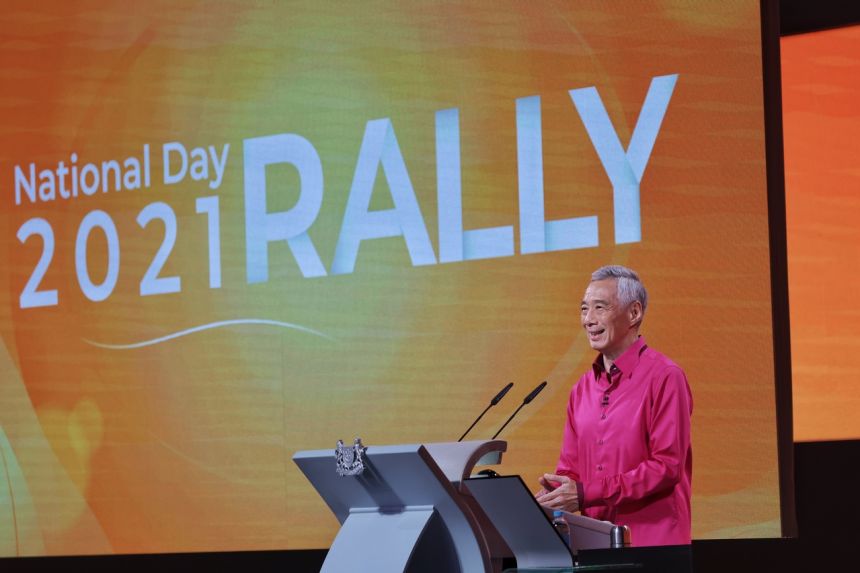With the Covid-19 outbreak under control, it is time for Singapore to refocus on the future, said Prime Minister Lee Hsien Loong in his National Day Rally speech on Sunday (Aug 29).
He also noted that the pandemic had sharpened fault lines in society and made some difficult issues more urgent. The bulk of his speech addressed three of them: supporting lower wage workers, addressing anxieties over foreign work pass holders, and managing race and religion.
Here are some of the highlights from the speech.
1.EP and S passes will continue to be tightened over time
The criteria for Employment Pass (EP) and S Pass holders will continue to be tightened progressively over time, so as to assuage Singaporeans’ anxieties over job competition and whether these pass holders are of the right standard.
He assured employers that the criteria will not be tightened too suddenly as this could hurt businesses
2. Expanding progressive wages to more workers
PM Lee said the scheme that helps lower-wage workers is the Progressive Wage Model (PWM). The PWM will be extended to more sectors such as retail, food services and waste management, and will cover specific occupations such as administrative assistants and drivers across all sectors simultaneously.
Companies that pay their workers progressive wages will be accredited with a new Progressive Wage Mark. The public sector, a major buyer of goods and services, will make purchases only from businesses that carry the mark.
3. Improving the lot of lower-wage workers
- LWWs and their families receive significant support from the Government, however beyond emergency assistance, LWWs need longer term support.
- Currently, there are two policies to help these workers in the longer term: Workfare Income Supplement and Progressive Wage Model.
- WIS Scheme to be increased to $1.1billion, raising payouts for Workfare recipients and helping those from age 30 instead of 35.
4. Delivery Workers
- Delivery workers are for all intents and purposes just like employees.
- Yet delivery workers have no employment contracts with the online platforms, thus no basic job protections.
- MOM is studying it, and will address the issues to give these workers more secure futures.
5. Muslim nurses can wear tudung at work
Starting in November, Muslim nurses in the public healthcare sector will be allowed to wear a tudung with their uniforms.

